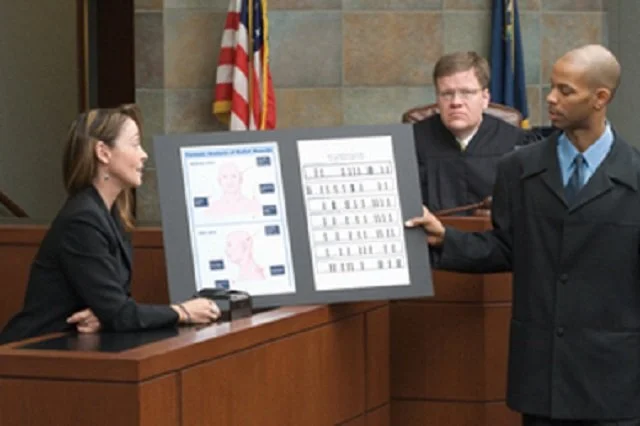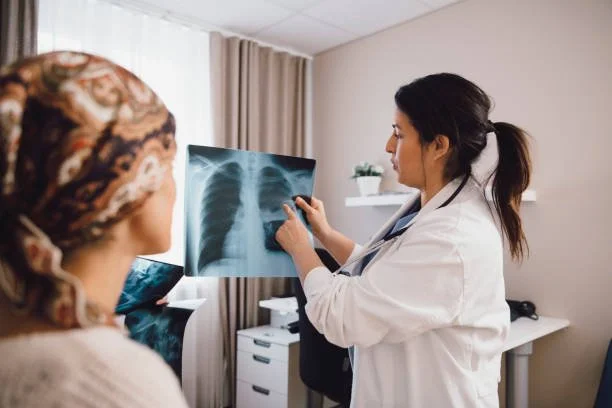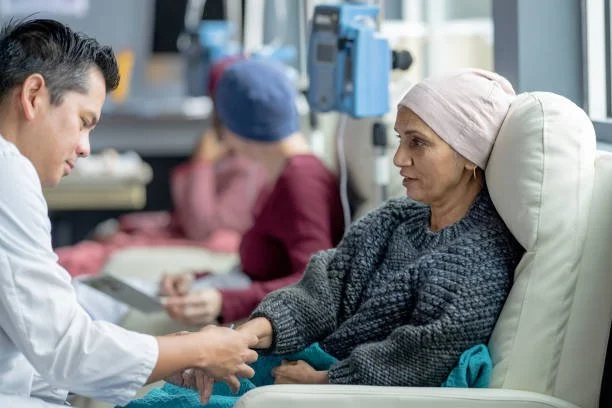
5 Mistakes Attorneys Make When Selecting Medical Experts—and How to Avoid Them
Choosing the right medical expert is crucial for a successful legal outcome, yet attorneys often make avoidable mistakes that weaken their case. From inadequate vetting to poor communication, these errors can cost time and credibility. This blog explores five common mistakes in expert selection and how Lexcura Summit’s Legal Nurse Consultants help attorneys avoid them for stronger litigation results.

What Every Medical Expert Should Know Before Testifying in Court
Testifying in court can be challenging for medical experts without proper preparation. Understanding legal procedures, anticipating cross-examination, and delivering clear, concise testimony are critical for effective courtroom performance. This blog outlines key insights Legal Nurse Consultants provide to medical experts, ensuring they are confident and credible when testifying to support legal cases.

Expert Witness & Deposition Prep: How Legal Nurse Consultants Strengthen Testimony
Effective preparation is key to confident, credible expert witness testimony. Legal Nurse Consultants play a vital role in helping attorneys ready their medical experts for depositions and trial by clarifying complex clinical information, anticipating cross-examination strategies, and ensuring testimony aligns with case objectives. This blog explores how Lexcura Summit enhances expert witness readiness to strengthen legal outcomes.

Medication Mismanagement in Nursing Homes: What Records Reveal
Medication mismanagement is a critical issue in nursing homes that can lead to serious harm and legal liability. Proper documentation is essential to uncover errors such as incorrect dosages, missed medications, or harmful drug interactions. This blog explores how Lexcura Summit’s Legal Nurse Consultants analyze medication records to help attorneys identify mismanagement and build strong nursing home abuse cases.

Evaluating Standard of Care in Long-Term Care Through Daily Documentation
Daily documentation in long-term care facilities is a critical tool for evaluating adherence to the standard of care. Consistent, thorough records help identify care gaps and establish whether negligence occurred. This blog explores how Lexcura Summit’s Legal Nurse Consultants analyze daily charts and notes to assist attorneys in assessing care quality and building strong litigation strategies in elder care cases.

Beyond Bedsores: Building Strong Pressure Ulcer Cases with Clinical Evidence
Pressure ulcers extend far beyond simple skin injuries—they reflect complex care failures with serious health consequences. This blog explores how Legal Nurse Consultants help attorneys gather and analyze clinical evidence to build compelling pressure ulcer cases. Lexcura Summit shares strategies for using medical records, timelines, and expert insights to establish liability and secure justice.

Connecting Dehydration and Infection to Wrongful Death in Elder Care
Dehydration and infection are common, yet often overlooked, factors that can lead to wrongful death claims in elder care. This blog explores how these conditions develop, their clinical signs, and how Legal Nurse Consultants assist attorneys in linking them to lapses in care and legal liability. Lexcura Summit provides expert insights to strengthen elder abuse and wrongful death cases.

How to Spot Charting Red Flags in Nursing Home Fall Injuries
Nursing home fall injuries require careful medical record analysis to uncover signs of neglect or inadequate care. Charting red flags—such as inconsistent documentation, delayed entries, or unexplained injury reports—can reveal critical evidence. This blog explores how Lexcura Summit’s Legal Nurse Consultants help attorneys identify and leverage these red flags to strengthen nursing home injury claims.

Sepsis and Stroke: Missed Timeframes That Can Make or Break Your Case
Timely diagnosis and treatment are critical in sepsis and stroke cases. Missed or delayed timeframes can lead to devastating outcomes and significantly impact legal claims. This blog explores how Lexcura Summit’s Legal Nurse Consultants analyze clinical timelines to identify crucial delays, strengthen causation arguments, and support attorneys in building compelling medical-legal cases.

Hospital Discharge Failures and Their Legal Consequences
Hospital discharge is a critical transition point in patient care, yet failures during this process can lead to serious complications and legal liability. This blog examines common discharge failures such as inadequate instructions, poor communication, and premature releases. Lexcura Summit’s Legal Nurse Consultants help attorneys identify these lapses and understand their impact on medical malpractice and negligence claims.

The Hidden Value of Triage Notes in Emergency Room Lawsuits
Triage notes, often overlooked, hold crucial insights in emergency room litigation. These initial assessments document patient condition, priority, and care decisions that can reveal lapses or delays in treatment. This blog explores how Lexcura Summit’s Legal Nurse Consultants analyze triage notes to uncover hidden evidence that strengthens ER malpractice cases.

Inside the ER: Common Documentation Failures That Indicate Negligence
Emergency rooms are fast-paced environments where documentation errors can have serious legal consequences. Common failures such as incomplete records, missing physician notes, and inconsistent timelines often signal negligence. This blog explores how Lexcura Summit’s Legal Nurse Consultants identify these critical documentation lapses to help attorneys build stronger ER malpractice cases.

How Legal Nurse Consultants Help Make Sense of Disorganized EHRs
Electronic Health Records (EHRs) can be complex and chaotic, with disorganized data that challenge even the most experienced attorneys. Legal Nurse Consultants specialize in sifting through voluminous, fragmented records to extract key clinical facts, identify discrepancies, and create clear, litigation-ready summaries. This blog explores how Lexcura Summit helps legal teams navigate disorganized EHRs to build stronger, more efficient cases.

Reconstructing Care Timelines in Complex Medical Malpractice Claims
Complex medical malpractice cases often involve fragmented and voluminous records that can obscure critical details. Reconstructing accurate care timelines is essential to clarify causation, identify lapses in treatment, and support strong legal arguments. This blog explores how Lexcura Summit’s Legal Nurse Consultants meticulously build detailed timelines to help attorneys navigate and win complex malpractice claims.

5 Documentation Gaps That Could Derail Your Case—and How LNCs Catch Them
Missing or incomplete medical documentation can seriously weaken legal cases. Common gaps such as omitted progress notes, inconsistent timelines, and unclear physician orders often go unnoticed—until it’s too late. This blog explores five critical documentation gaps that can derail a case and how Lexcura Summit’s Legal Nurse Consultants identify and address them to protect your litigation strategy.

From Chart to Courtroom: How Medical Chronologies Strengthen Legal Strategy
Medical chronologies transform complex, fragmented patient records into clear, organized timelines that highlight key clinical events. These timelines are vital tools for attorneys in establishing causation, pinpointing lapses in care, and preparing for trial. In this blog, Lexcura Summit explores how expertly crafted medical chronologies bolster legal strategy and improve case outcomes.

Medical Records That Matter: How to Identify the Most Legally Relevant Documentation
Not all medical records carry equal weight in litigation. Identifying the documents that directly impact liability, causation, and damages is crucial for building a strong case. In this blog, Lexcura Summit explains how Legal Nurse Consultants help attorneys pinpoint the most legally relevant medical records—streamlining case review and strengthening legal strategy.

When Time Is Tumor: The Cost of a Missed Cancer Diagnosis
In cancer cases, delays in diagnosis can have devastating consequences for patient outcomes and legal claims. This blog examines how timing plays a critical role in missed cancer diagnoses, the impact on treatment options, and the potential legal repercussions. Lexcura Summit highlights how Legal Nurse Consultants help attorneys identify crucial timeline gaps that can make or break a case.

Uncovering Missed Diagnoses in Cancer Cases Through Timeline Analysis
Missed cancer diagnoses often hinge on subtle timeline discrepancies that can be uncovered through meticulous medical chronology. Legal Nurse Consultants play a vital role in reconstructing the sequence of care to identify delays or oversights that impact patient outcomes. In this blog, Lexcura Summit explores how detailed timeline analysis strengthens cancer litigation by highlighting critical missed opportunities for diagnosis and treatment.

Evaluating Wrongful Death Claims: What Medical Records Reveal
Wrongful death claims hinge on detailed medical record analysis to uncover evidence of negligence, causation, and damages. Legal Nurse Consultants play a critical role in interpreting complex clinical data, identifying care lapses, and providing attorneys with clear, actionable insights. This blog explores how Lexcura Summit helps legal teams evaluate wrongful death cases with precision and thoroughness.
